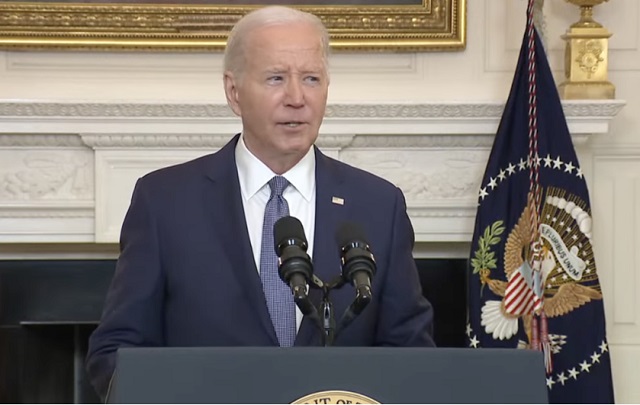From The Center Square
By Casey Harper
“President Biden is my friend. He must bow out of the race.”
President Joe Biden and his campaign are facing the fallout of a disastrous debate performance Thursday night.
Biden responded to reporters’ questions about Democrats’ concerns over his performance by saying he was not concerned.
“It’s hard to… hard to debate a liar,” Biden told reporters at a Waffle House in Atlanta after the debate. “The New York Times pointed out he made – lied 26 times.”
When asked if he was sick, as his campaign had said, Biden said he had a sore throat.
“I think we did well,” Biden told reporters.
The question came because during the debate, Biden faltered, fumbled, stumbled and at times became incoherent and trailed off. The issue was particularly obvious the first few minutes of the debate.
“I really don’t know what he said at the end of that sentence,” Trump said early in the debate after one of those moments. “I really don’t think he knows what he said either.”
In another instance, Biden ended a trailing response with “We finally beat Medicare” before trailing off.
“He beat it to death!” Trump shot back.
Biden has faced questions about his mental fitness for years but largely fended them off enough to satisfy his base.
“Nothing that any Republican or conservative says today can darken the night President Biden had,” Colin Reed, a Republican strategist, former campaign manager for U.S. Sen. Scott Brown, R-Mass., and co-founder of South and Hill Strategies, told The Center Square. “He had a low bar to clear, and he came nowhere close to doing it. Never before in American presidential history has one event had the potential to upend the dynamics of the race so quickly and so completely.”
After this debate, CNN analysts, Democratic strategists, and liberal media outlets all reported panic within the party about Biden’s poor performance.
First among those Democrats are those in tight races and purple states where a poorly performing Democratic president could cost them their own election.
“Keep an eye on those Democrats in red states running for re-election,” Reed told The Center Square. “Other than the Biden family, they are the ones who are most endangered and jeopardized by the long-term political fallout if the bottom starts falling out.”
Politico immediately reported Biden was “toast” Thursday night.
The New York Times questioned Biden’s “halting” performance.
New York Times columnist Tom Friedman published an article with a blistering headline: “President Biden is my friend. He must bow out of the race.”
During the post-debate CNN analysis, Democratic pundit Van Jones said Biden’s performance was painful as others asked whether Biden should drop out to make way for another candidate.
A Quinnipiac poll released the day before the debate showed Trump leading Biden by four points.













